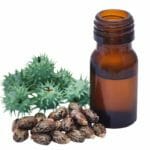Can you use bar soap as shampoo? The Pros and Cons Explained
At BeautyCaters, our expert team independently curates every recommended product. Purchases through our links may earn us a commission. Explore our transparent selection process.
Shampoo sales have taken a hit lately due to the rising popularity of soap bars as an alternative to conventional hair cleansers. But, despite the convenience of using a single soap for the whole body, the question remains- can you use bar soap as shampoo? This article is all about it. So, let’s delve deep, and explore the pros and cons of using a soap bar as shampoo.

- Can I use bar soap to wash my hair?
- How does shampoo differ from soap bars?
- Factors to consider before using bar soap as shampoo
- Effects of Bar Soap on Different Hair Types
- Pros and Cons: Can you use soap bar as shampoo?
- How to Use Bar Soap to Wash Hair?
- Tips for Using Soap Bar as Shampoo
- Final Word: Can you use bar soap as shampoo?
Can I use bar soap to wash my hair?
Yes, a bar soap can become your hair cleanser if you are tired of spending high on shampoo or want something more affordable. However, you shouldn’t use it in the long run or if you care about your hair.
How does shampoo differ from soap bars?
The difference in formulation sets shampoo apart from soap bars. Shampoos are cleansers containing detergent-free surfactants and nourishing ingredients that make the scalp and hair healthy with time. Soap bars, on the other hand, are made from natural oils, fats, and lye formulated for the skin. This formulation may strip off hair’s natural oil.
Factors to consider before using bar soap as shampoo
While using a soap bar for cleaning the body and hair may seem convenient, it may not be the ideal option for everyone. Before replacing your shampoo with a bar soap, it’s important to consider several factors. Below ar the 6 essential factors you must consider before switching your shampoo with soap bar.

Ingredients
Conventional soap bars often include harsh ingredients such as SLS (sodium laureth sulfate) and SLES (sodium lauryl sulfate). These ingredients can be detrimental to your hair’s health. They can strip natural oils from hair and leave it dry and frizzy. Natural soap bars contain nourishing ingredients. While gently cleansing hair, it also nourishes the follicles.
Scalp condition
If you have a dry or sensitive scalp, using a soap bar may not be the best choice. Some soap bars contain ingredients that can worsen dryness and conditions like dandruff or eczema.
Hair length
Short hair strands, being more resilient and less prone to damage, can quickly recover from the effects of regular soap bars. Long hair is more susceptible. So, regular soap can strip away its natural oils and turn it dry and brittle.
Hair type
Regular soap bar is not meant for all hair types. Regular soap bars contain ingredients that can strip off hair’s natural oil and lead to scalp dehydration and pH imbalance. It can cause problems like dandruff, an itchy scalp, and even hair loss.
Water quality
A bar soap is ideal to wash your hair if you have hard water rich in minerals like calcium and magnesium. But, for soft water, shampoo is a suitable hair cleanser as regular bar soap hair can turn dry and straw-like.
Frequency of use
A soap bar is unlikely to damage your hair if you use it once a week. But, if you use it daily or on alternate days, it could strip away hair’s natural oils, leading to dryness and breakage.
Related: Best ayurvedic shampoos for dandruff
Effects of Bar Soap on Different Hair Types
Hair is categorized into different types based on thickness, moisture levels, and texture. Bar soap has different effects on each hair type. So, let’s explore the potential outcomes of using bar soap on different hair types:
- Fine and Thin Hair: Bar soap may cause fine and thin hair to become dry and brittle, leading to increased breakage and hair loss.
- Curly and Coarse Hair: Bar soap can strip curly and coarse hair of its natural oils, resulting in frizz, tangles, and a lack of moisture.
- Oily Hair: Bar soap’s alkaline nature can exacerbate oily hair, leading to an overproduction of sebum and a greasy appearance.
- Damaged or Chemically Treated Hair: Bar soap’s harsh ingredients and alkaline pH can further damage already compromised hair, leading to increased dryness and potential color fading.
- Normal Hair: Any potential effects of bar soap on normal hair would still disrupt the natural pH balance and strip the hair of its essential oils, potentially leading to dryness or an itchy scalp.
Importantly, the information mentioned above can be better visualized in the following table:
| Hair Type | Potential Effects of Bar Soap |
|---|---|
| Fine and Thin Hair | Dryness, brittleness, breakage, and hair loss |
| Curly and Coarse Hair | Frizz, tangles, lack of moisture |
| Oily Hair | Excessive sebum production and greasiness |
| Chemically Treated Hair | Further damage, dryness, and potential color fading |
| Normal Hair | Disruption of pH balance, dryness, and potential scalp itchiness |
It is crucial to understand these potential effects to make an informed decision about whether bar soap is suitable for your specific hair type. Remember, your hair deserves gentle care tailored to its unique needs.
Pros and Cons: Can you use soap bar as shampoo?
However, before you decide to swap your shampoo bottle for a bar of soap, it’s important to weigh the potential benefits and risks. While bar soap can be a convenient alternative, it’s essential to understand how it might impact your hair and scalp. Below are the potential benefits and risks of using soap bar as shampoo.
Potential Benefits of Using Bar Soap as Shampoo
Here are the 3 potential benefits that soap bars provide as a shampoo.

Natural ingredients
It is the formulations of soap bars that affect hair. So, if you choose a soap bar with a natural formulation to wash hair, the scalp gets gently cleansed while the hair stays nourished.
Environmentally friendly
Soap bars are an environmentally friendly option. Unlike shampoo, they come with minimal or no plastic packaging, which is biodegradable and hardly emits carbon.

Cost-effective
Soap bars are cost-effective compared to shampoo. A single bar of soap lasts longer than a bottle of shampoo, making it a budget-friendly option for hair care.
Moreover, bar soap can be an excellent choice for individuals with oily hair. The cleansing properties of soap can help remove excess oils and buildup, leaving your hair feeling fresher and cleaner. It can also be beneficial for those with dandruff or a dry scalp, depending on the specific soap ingredients. However, it’s important to note that these benefits may vary depending on your hair type and the specific soap formula you choose.
Potential Risks of Using Bar Soap as Shampoo
Using bar soap as a shampoo may have advantages, but it’s essential to be aware of its potential risks and drawbacks. Here are the three drawbacks of bar soap as shampoo.

Potential residue buildup
Soap leaves a lot of residue on the scalp and hair roots if not rinsed thoroughly. It amplifies hair damage issues. Also, washing with soap opens up your hair follicles, which makes them susceptible to further damage, resulting in split ends.

pH levels and hair damage
Soap is highly alkaline with a pH of 9 and 10, while the pH of our hair falls between the range of 4.5 to 5.5, slightly acidic. This disparity in pH levels makes soaps unsuitable for hair. When used on hair, soap induces alkalinity. You may feel like your hair is thoroughly cleaned, whereas it strips off the natural oils from your hair. As a result, hair turns thin, dry, and damaged over time.
Trigger allergies and existing scalp condition.
Harsh chemicals of bar soaps can trigger allergies, sensitivities, or existing scalp conditions such as psoriasis and scalp eczema. Furthermore, they may not provide the conditioning or moisturizing properties as dedicated shampoos and conditioners do.
Doesn’t condition hair
When you wash your hair with soap, you miss out on conditioning agents such as Shea butter, nourishing oils, and proteins. These agents moisturize hair, strengthen it, and repair damage. Soap hardly provides these benefits.
Ultimately, the decision to use bar soap as a shampoo substitute is a personal one, and its effectiveness will vary from person to person. It is important to consider your hair type, any existing scalp conditions, and your personal preferences before making the switch.
How to Choose the Right Bar Soap for Your Hair Type
If you want to try bar soap for washing hair, to achieve the best results. Consider your hair type to select the right bar and achieve the best result. Scroll down to have an idea of your hair needs.
- If you have oily hair, look for a bar soap that helps regulate sebum production and removes excess oil without stripping your hair of essential moisture.
- For dry or damaged hair, opt for a moisturizing bar soap that contains nourishing ingredients, such as shea butter or argan oil. These can help restore hydration and repair any damage.
- If you have curly or frizzy hair, choose a bar soap that promotes curl definition, reduces frizz, and provides added moisture. Look for ingredients like aloe vera or coconut oil.
- For those with color-treated hair, it’s important to select a bar soap that is specifically formulated for colored hair. These soaps are designed to be gentle on the hair and to preserve the vibrancy and longevity of your color.
How to Use Bar Soap to Wash Hair?
If you want to give bar soap a try as a shampoo alternative, there are a few practical tips on how to use bar soap to wash hair. Below are the tips that ensure your hair stays clean, healthy, and manageable.

- Consider your hair type: Just like with regular shampoo, it’s essential to choose a bar soap that suits your hair type. Whether you have oily, dry, curly, or color-treated hair, the right bar soap can make a significant difference in maintaining the health and appearance of your locks.
- Choose the right soap bar: Look for a soap bar specifically formulated for hair care, preferably one that contains natural oils and moisturizing ingredients. Avoid soap bars with harsh chemicals or high pH levels that can potentially damage the hair.
- Lather the soap in your hands: To create a suitable lather, rub the bar soap gently between your hands until it forms a rich foam. This ensures that the soap is evenly distributed throughout your hair, allowing for a thorough cleanse.
- Massage your scalp: Use your fingertips, gently massage the bar soap foam into your scalp. This helps to stimulate blood circulation and remove any dirt or impurities that may have accumulated.
- Rinse thoroughly: After massaging the soap into your scalp and hair, rinse it thoroughly. Be sure to remove all traces of the soap to prevent any potential residue buildup, which could leave your hair feeling weighed down or greasy.
- Follow up with conditioner: While bar soap can effectively cleanse your hair, it may not provide the same conditioning benefits as shampoos. To maintain optimal hydration and manageability, use a conditioner after shampooing with bar soap. This will help restore moisture and nourish your hair, leaving it soft and silky.
- Keep your bar soap dry: To prolong the life of your bar soap and prevent it from becoming mushy or disintegrating, make sure to store it in a dry area when not in use. Using a soap dish or a well-draining container can help keep your soap dry and maintain its integrity.
Tips for Using Soap Bar as Shampoo
Avoid excessive use
Using a soap bar too frequently can lead to residue buildup and potential hair damage. It’s best to use a soap bar as shampoo on an occasional basis to avoid these issues.
Incorporate apple cider vinegar rinse
An apple cider vinegar rinse can help restore the pH balance of the hair and scalp after using a soap bar as shampoo. Simply mix a few tablespoons of apple cider vinegar with water and use it as a final rinse after washing the hair.
Store the soap bar properly
To expand the life of your soap bar, store it in a dry area between uses. A well-drained soap dish or a soap saver can help keep the bar dry and prevent it from becoming mushy.
The key to successfully using bar soap as shampoo is to be mindful of your hair’s specific needs and to follow a consistent routine. With proper care and experimentation, you can achieve clean, vibrant, and healthy-looking hair while reducing your reliance on traditional shampoo.
Final Word: Can you use bar soap as shampoo?
Using a soap bar to wash hair has its pros and cons. While it seems convenient or cost-effective, the shampoo and soap are formulated differently to fulfill specific purposes. Bar soap contains higher levels of pH and can strip your hair of its natural oils, leaving it dry and potentially causing scalp irritation. Additionally, bar soap may not effectively remove the build-up of styling products or address specific hair concerns. Therefore, it is best to opt for a shampoo product that is specifically designed for hair care to maintain a healthy and balanced scalp and hair.










